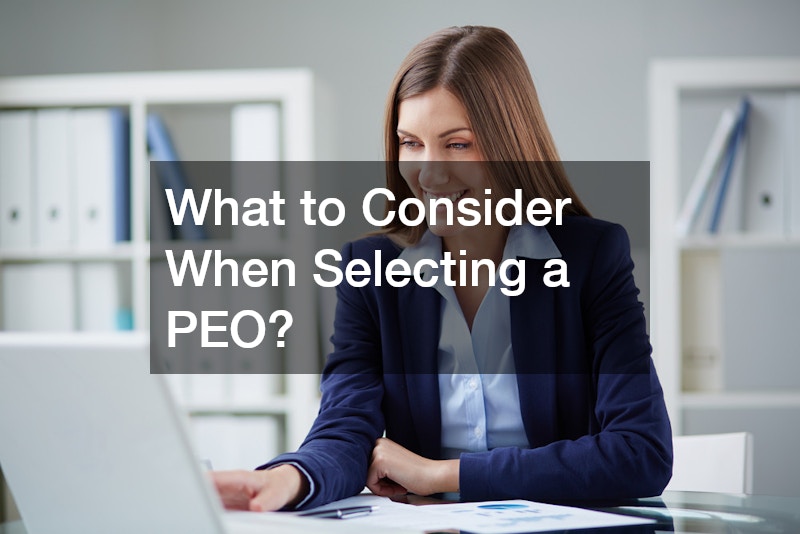In today’s rapidly evolving business landscape, companies are continually seeking ways to optimize operations, streamline workforce management, and focus on core functions. Professional Employer Organizations (PEOs) have emerged as a strategic partner for businesses looking to thrive in a competitive environment. This article delves into the importance of PEO services, addressing frequently asked questions and key topics surrounding their impact.
What is a PEO and How Does it Work?
Definition and Scope of PEO Services
A Professional Employer Organization, or PEO, is a firm that provides comprehensive HR solutions for small and medium-sized businesses. These services range from payroll and benefits administration to HR compliance and risk management.
Through a PEO, companies can delegate their HR tasks to experts, allowing them to concentrate on their core business activities. This arrangement effectively minimizes the need for an in-house HR department.
The scope of PEO services extends to hiring, training, and employee performance management, offering valuable insights into improving workforce efficiency. This allows businesses to enjoy the dual benefits of professional HR management and operational flexibility.
The Co-Employment Relationship Explained
The co-employment model is central to how PEOs function, where both the PEO and the client company share employer responsibilities. Under this arrangement, the PEO becomes the employer of record for tax purposes, while the client company retains control over day-to-day operations.
This shared responsibility model lets businesses leverage the PEO’s expertise in HR processes and compliance. It also shifts some of the employment-related liabilities to the PEO, thereby reducing the client’s risk exposure.
Through co-employment, companies can access better health insurance, retirement plans, and other employee benefits typically reserved for larger organizations. This partnership effectively makes small businesses more competitive in talent acquisition.
Why Do Companies Choose PEO Services?
Cost Savings and Efficiency
By outsourcing HR functions to a PEO, companies can achieve significant cost savings due to economies of scale. PEOs spread their administrative costs over multiple client organizations, lowering the expenses for each.
Alongside financial benefits, PEOs enhance operational efficiency by introducing streamlined processes and automation. Companies can redirect resources to strategic areas that drive growth and innovation.
PEOs can also negotiate better rates for various services and insurance due to their larger client base. These advantages make the PEO model a preferred choice for those seeking efficiency and cost-effectiveness.
Access to Robust Employee Benefits
One of the attractive features of partnering with a PEO is access to comprehensive employee benefit packages. PEOs can manage and deliver high-quality health, dental, and vision insurance plans.
With competitive benefits, small to mid-sized businesses can attract and retain top talent in a highly competitive job market. This access contrasts sharply with the limited options that smaller companies might otherwise face.
Moreover, PEOs often facilitate additional services like retirement plans and wellness programs. These offerings further enhance employee satisfaction and engagement.
How Does a PEO Improve Compliance and Risk Management?
Navigating Complex HR Regulations
As businesses grow, they face a myriad of complex HR regulations and compliance challenges. PEOs provide valuable assistance by keeping abreast of changes in employment law and policy.
This expertise ensures that businesses remain compliant with federal, state, and local laws, reducing the risk of costly legal disputes. PEOs offer ongoing support and guidance in implementing compliant HR policies.
Additionally, PEOs meticulously handle employee documentation and reporting requirements. This added layer of security safeguards companies from inadvertent compliance violations.
Mitigating Employment-Related Risks
PEOs employ risk management strategies to minimize workplace liabilities and enhance overall safety. They conduct regular audits to identify potential risk areas and recommend corrective measures.
Furthermore, PEOs assist in developing and enforcing workplace policies that adhere to best practices. This proactive approach effectively mitigates the likelihood of employment-related disputes.
By transferring certain employment risks to the PEO, companies can focus more on growth and less on potential legal entanglements. This partnership fosters a stable and secure work environment.
How Can a PEO Boost Employee Satisfaction and Productivity?
Enhancing Workplace Culture
PEOs play a pivotal role in shaping a positive workplace culture by implementing effective HR practices. They offer strategies to improve communication, collaboration, and inclusivity in the workforce.
An enhanced work culture leads to increased employee morale and reduced turnover. Employees thrive in an environment where their well-being and professional development are prioritized.
Moreover, PEOs provide essential resources to address employee grievances and encourage feedback. Such initiatives foster a supportive workplace, driving employee satisfaction and productivity.
Training and Development Opportunities
PEOs invest in the continuous training and development of employees, ensuring they remain competitive and engaged. They organize workshops and seminars tailored to upskill the workforce.
Access to professional development not only enhances employees’ career prospects but also contributes to company growth. A skilled workforce is an asset that drives innovation and adapts to market changes.
These training programs empower employees with the necessary tools and knowledge to achieve their professional goals. As a result, productivity is boosted, and employees feel more accomplished and valued.
What to Consider When Selecting a PEO?
Evaluating PEO Credentials and Track Record
Choosing the right PEO partner involves researching their credentials and industry reputation. Businesses should prioritize PEOs with proven track records and satisfied clientele.
Certifications from recognized organizations like the Employer Services Assurance Corporation can provide assurances of quality. Verifying these credentials helps in making an informed decision.
Investigating the PEO’s history of service delivery, client satisfaction, and problem-solving capabilities is critical. A strong reputation indicates reliability and effectiveness.
Understanding Contractual Terms and Fees
Before entering a PEO agreement, understanding the contractual terms and associated fees is essential. Businesses should thoroughly review service level agreements and cost structures.
Transparency in pricing models, whether flat fees or percentage-based costs, ensures there are no hidden surprises. This clarity facilitates a sustainable and mutually beneficial partnership.
Engaging in discussions with PEO representatives about their service offerings and pricing helps clarify expectations. Detailed contracts protect the interests of both parties involved.



